

We were lucky to sit down with Suffolk based Interior Designer and Art & Antiques Dealer - Ambrice Miller - to discuss her five favourite lots in our upcoming Fine Interiors sale which, as expected, expertly demonstrate her eclectic and wide-ranging tastes.
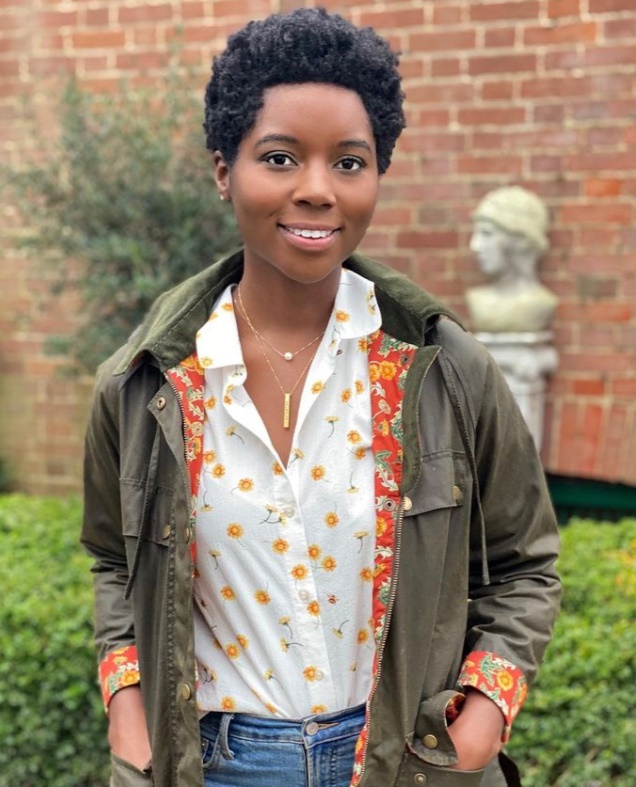
Ambrice Miller created her Instagram account (@relic_interiors) in January 2020 but only really started posting to it in August last year, selling antique and vintage pieces that are traditional, elegant and affordable. Already, she has gained over 7,500 followers and has been featured by Homes & Antiques and House & Garden, a testament to the popularity of her curated selection of pieces, as well as the growth in buying art online which she says will only further increase.
Here she picks out her favourite five lots from our forthcoming Fine Interiors sale, to be held live on 29-30 June.
Lot 61
Italian School, late 18th century
Portrait of a sculptress, bust length, working on a classical bust
Estimate: £1,000-1,500
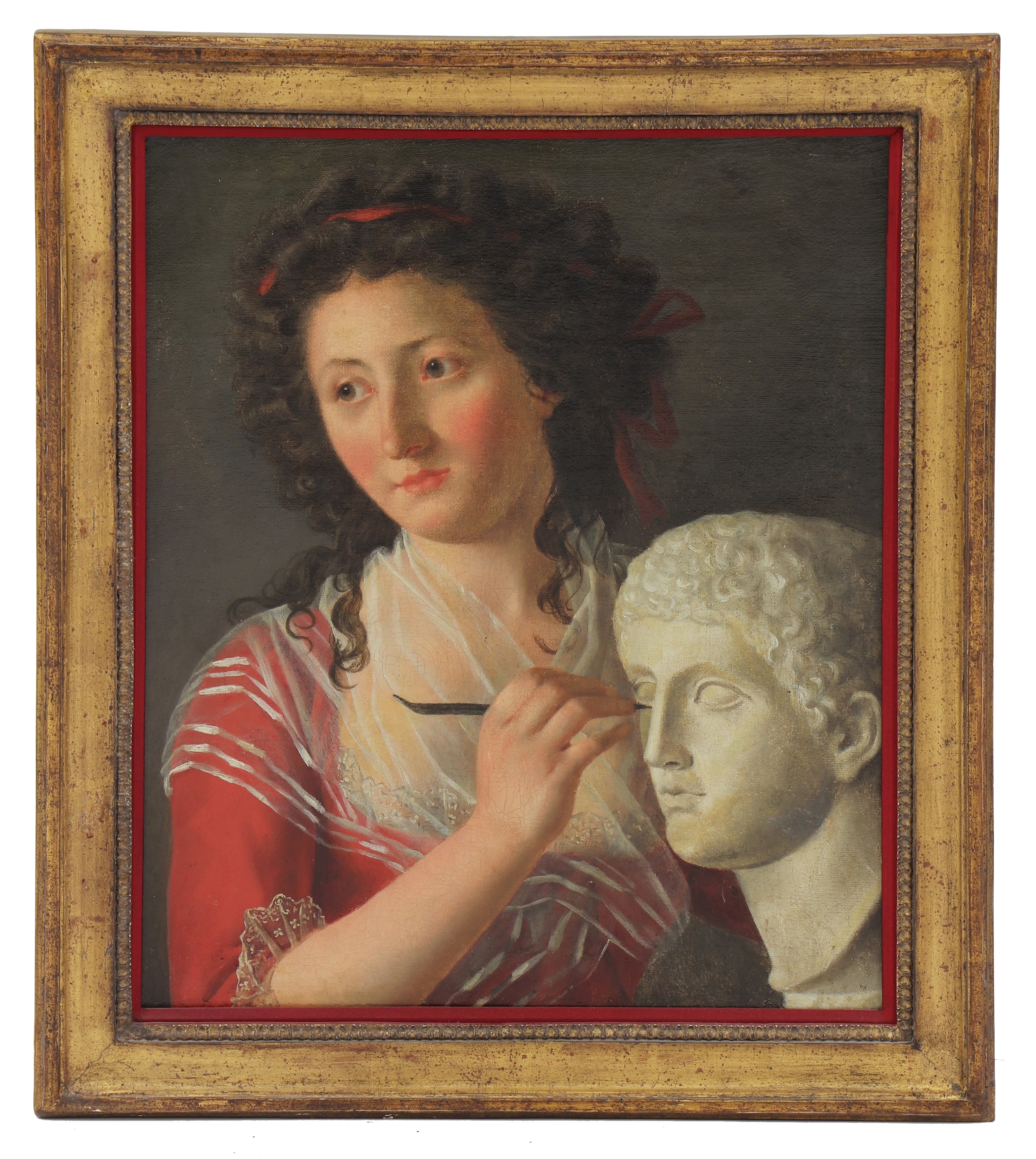
I was immediately drawn to this painting because of the female subject, but only when I thought about what this meant did I really become interested in it. Firstly, apprenticeships in artist’s studios or any sort of education for women in the 18th century would have been extremely rare, being that these spaces were almost exclusively reserved for men. There are also quite a few details in the painting that give clues to the subject herself, for example she is obviously quite a skilled artist using marble and a fine finishing tool and her fine dress suggests she is from a wealthy family. Unknown narratives such as this are really intriguing as the viewer can make up their own story, it could even be that the painter has depicted herself as the sitter, offering another dimension to the story.
Lot 240
After Sir Peter Paul Rubens (Flemish, 1577-1640)
Christ giving the keys to St Peter
Estimate: £400-600
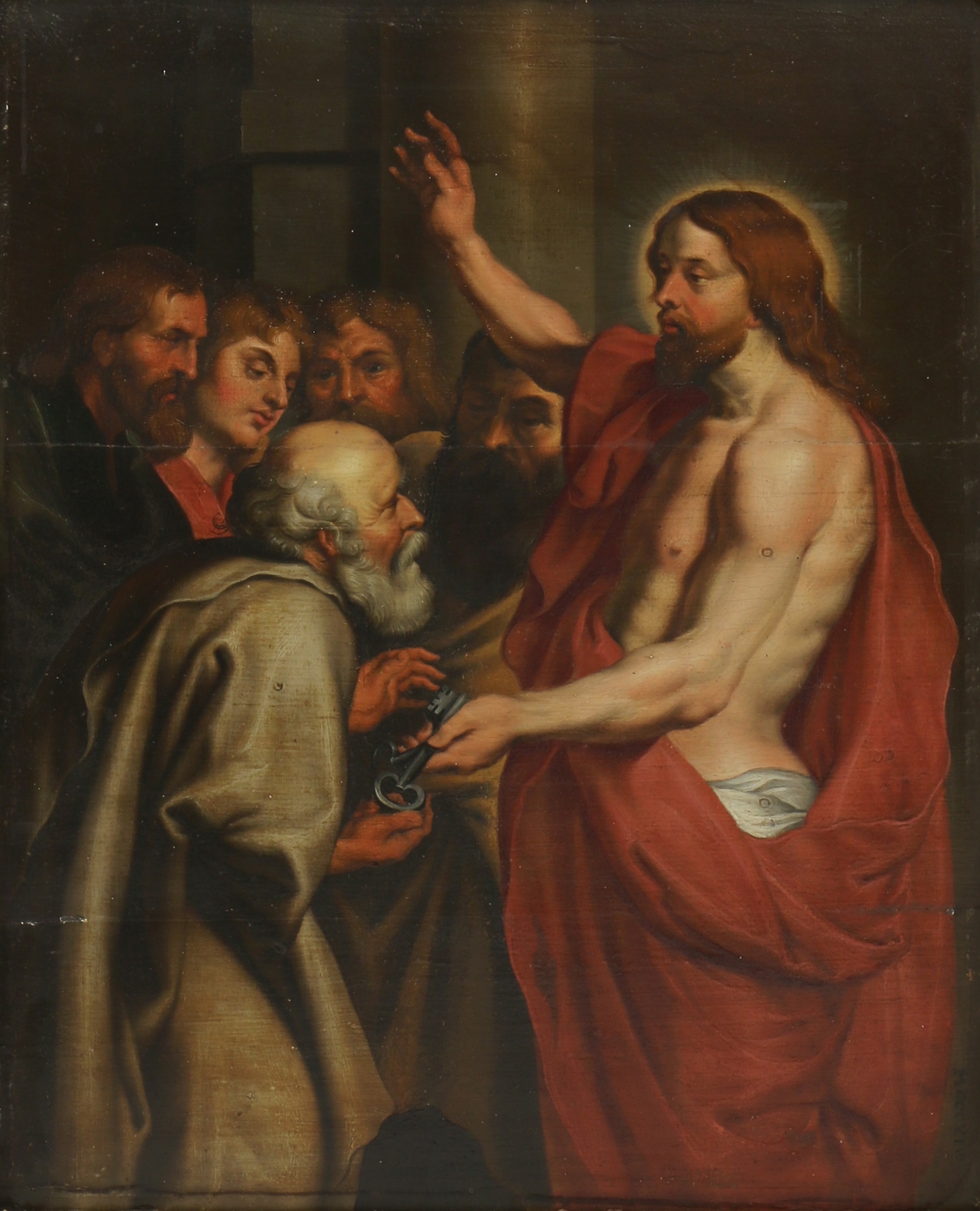
I am a huge fan of Rubens and this is a good example of 16th/17th Baroque painting. It’s quintessential of its period with a focus on the Christ figure’s muscles and facial expression, as well as the use of light to illuminate this figure in comparison to the others in the painting. The compact size also really intrigues me and it manages to capture a lot of detail which is common for the period; a complex and sometimes cramped composition, something Rubens is quite famous for but on a larger scale.
Lot 88
A Ghanaian Fante Asafo flag
Estimate: £300-500
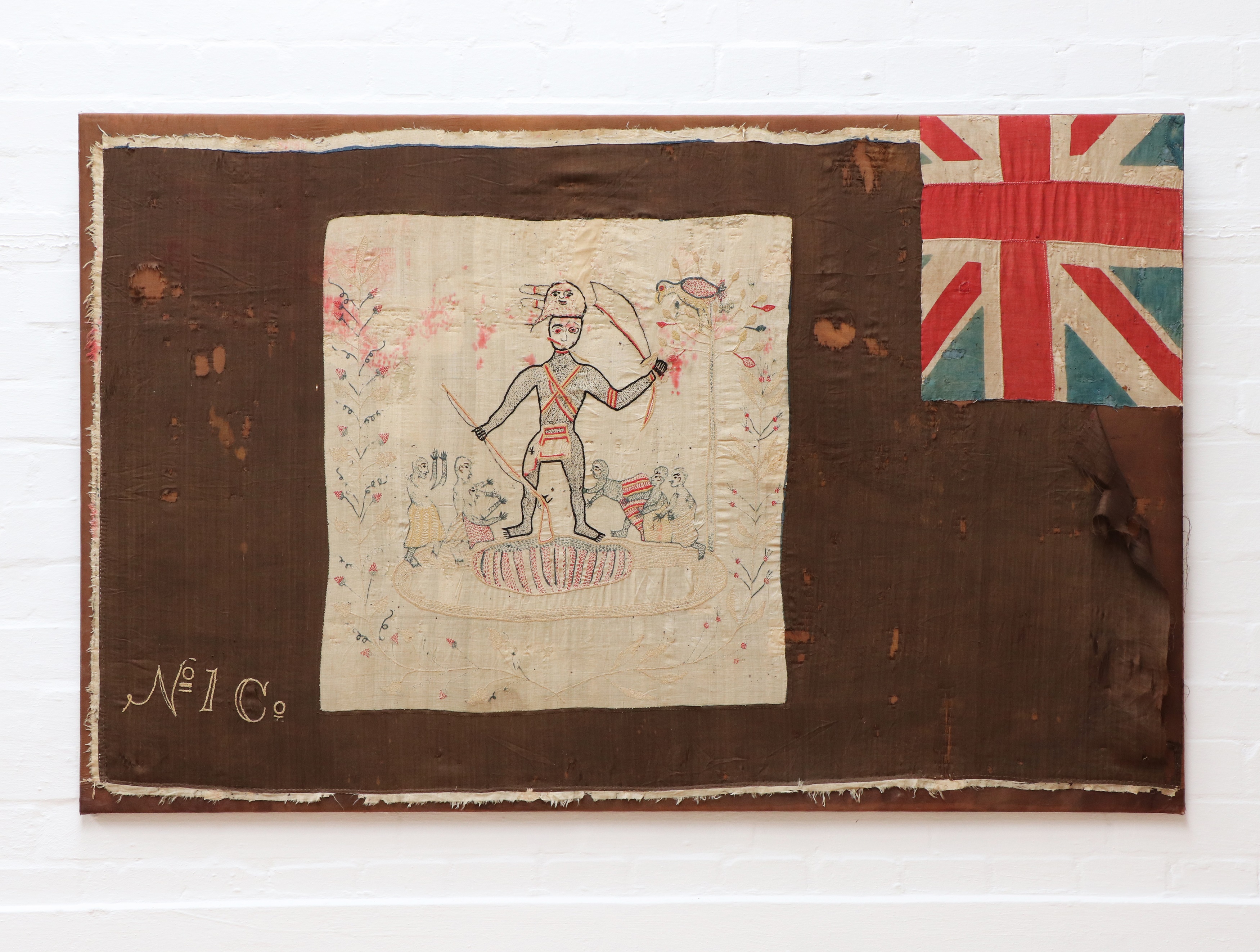
When choosing pieces for myself or a client, I always look for things that are both visually appealing and have a strong cultural significance. Lot 88 really resonated with me as it is literally a visual piece of history, having been an emblem of a Fante Asafo company. Asafo flags originated in the mid 18th-century but are still made today and the British Union Jack in the upper right indicates that the present example was made before Ghanian independence in 1957. I am particularly interested in the forceful marriage between something that is culturally significant to the Fante people but so strongly influenced by colonialism, and the juxtaposition between native and European perspectives that it represents.
Lot 113
An opposing pair of taxidermy peacocks
Estimate: £1,500-2,500
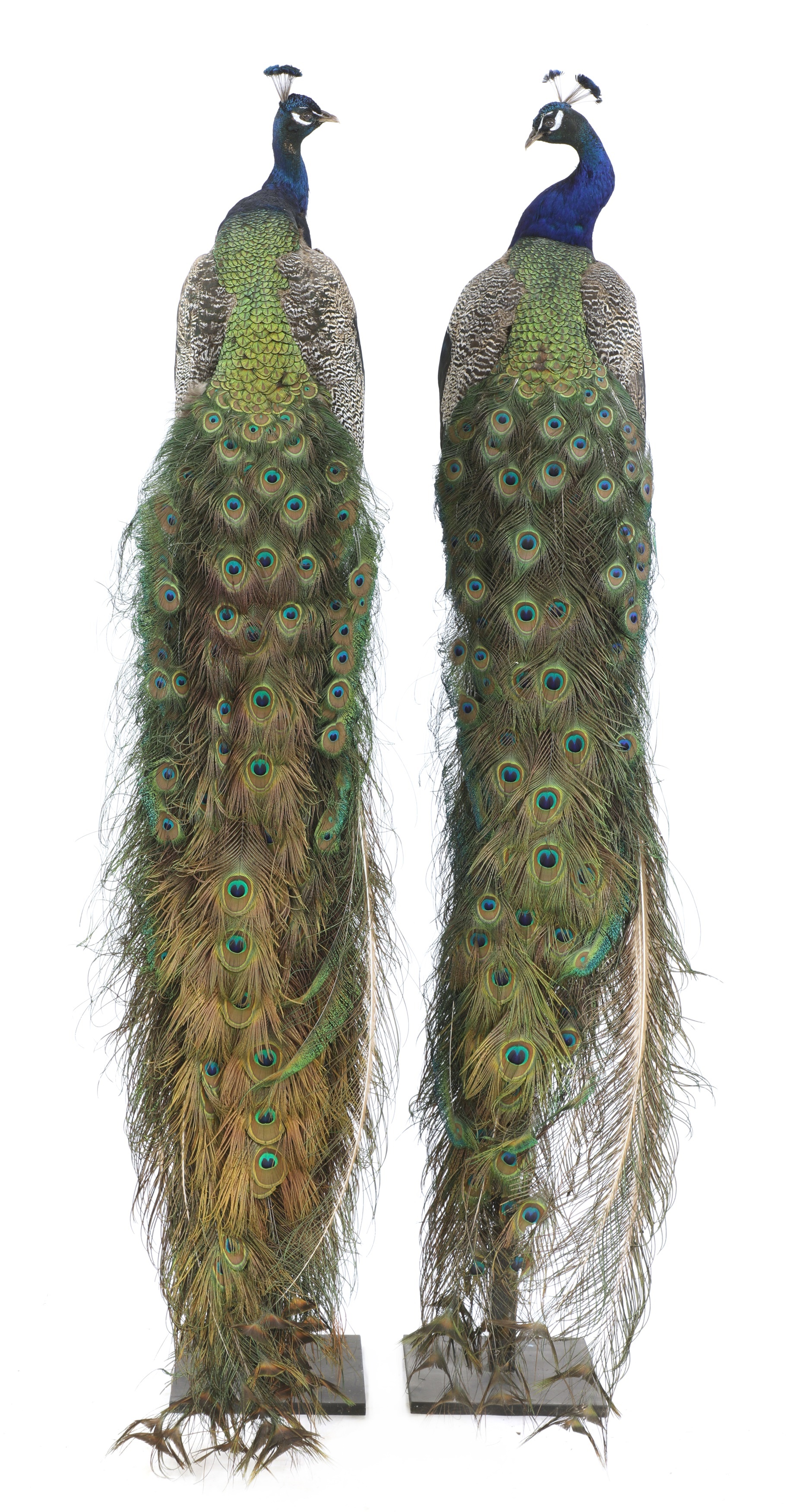
These peacocks are incredibly striking and extremely well made. Taxidermy is a fine art in itself and it’s difficult to find examples so well executed and in such good condition. In historical terms, the peacock has been used as a decorative motif for centuries, they were seen as a symbol of wealth, beauty and rebirth since antiquity and in India, where peacocks are originally from, they were a symbol of royalty. Today still they are used as a decorative symbol, particularly in maximalist interiors which I am extremely fond of!
Lot 261
Attributed to James Maubert (Irish, 1666-1746)
Portrait of the Holdsworth children of Devon, from left: Mary (b.1727), Sarah (b.1728), Arthur (b.1733) and Anne (b.1731), all full length, Mary holding a basket of flowers and Arthur seated on a velvet cushion
Estimate: £5,000-7,000
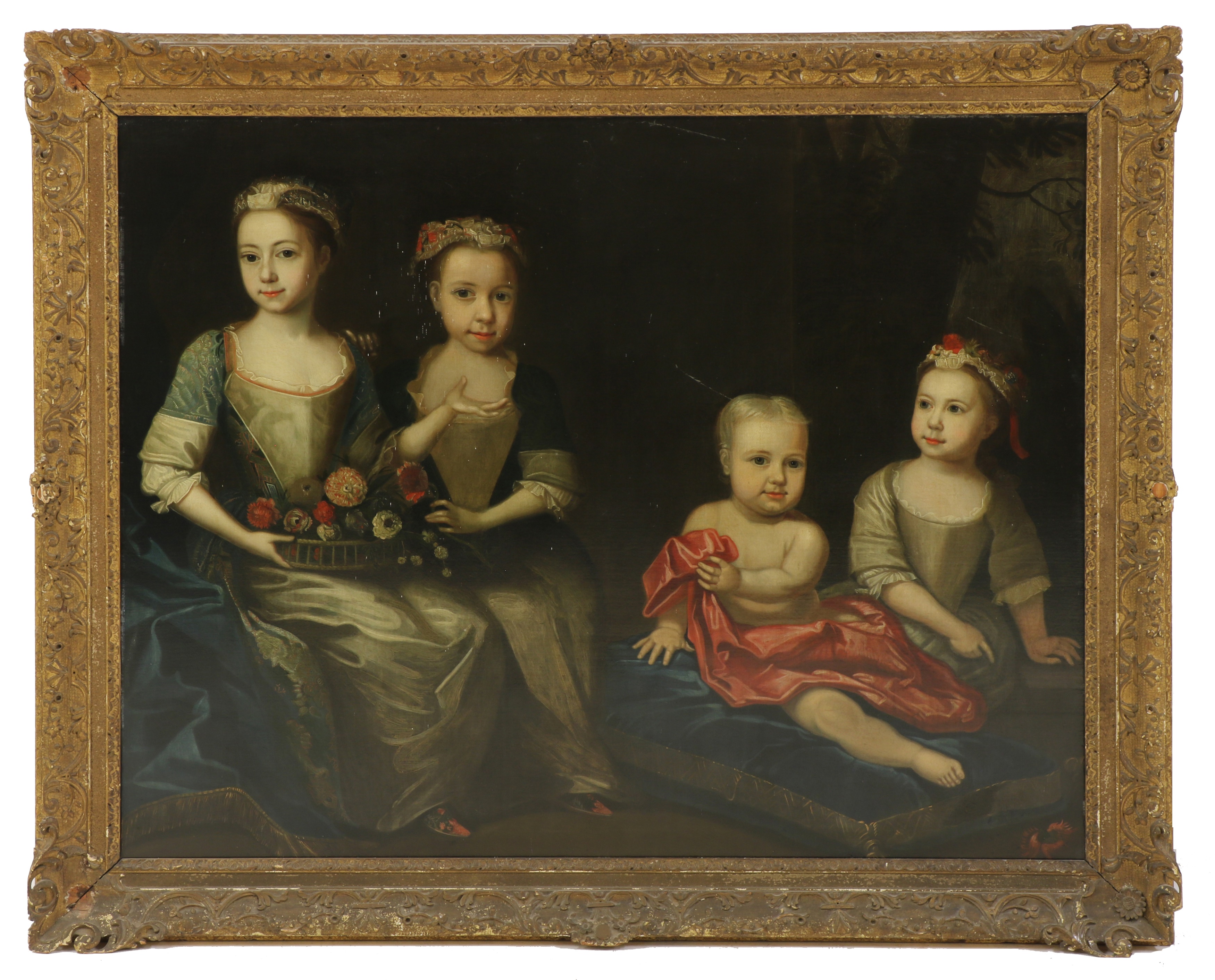
I am really drawn to portraiture and this particular example is a prime example of the ethos of the period in which it was created. Historically, portraits were reserved for important individuals and nobility but in the 18th century artists began to paint more children and animals. The four healthy children we see in the picture are a testament to the couple’s health and fertility as this was rare in a period when infant mortality rates were high. The work is littered with symbolism, including the flowers held by the girl on the far left, indicating the fertility of the family as well as the fragility of life, and the fine clothes worn by them all, suggesting their wealth and social standing.
You can learn all about Ambrice's work by following her on Instagram @relic_interiors or visiting her website www.relicinteriors.com
From all at Sworders, we wish you a very Happy Easter!
17 April 2025
A remarkable collection of 177 lots of rare and historic Bibles feature in our timed auction of Books, Manuscripts and Maps from 17-27 April, offering collectors, scholars and history enthusiasts a unique opportunity to own some of the most significant early English translations of the Holy Scriptures. The collection showcases centuries-old editions that played a pivotal role in shaping religious thought, language and culture.
15 April 2025
Ahead of his upcoming ‘retirement sale’ on 13–14 May, we caught up with the ever-charismatic Paul Atkinson to uncover some of the captivating stories behind the lots on offer.
11 April 2025